Temporaneamente a Castruccio
Institutional Contact: VI Municipality of Rome Capital
Chronology: 2011 - ongoing
Area: 450 mq
(a)
The project "Temporarily in Castruccio" takes place in Pigneto, a neighborhood in the eastern suburbs of Rome. Grown in the late nineteenth and early twentieth century, the neighborhood is highly populated and is characterized by numerous areas grown spontaneously. In particular, Pigneto in the last decade has experienced a process of change in consequence of the arrival of young couples and immigrant communities. The renewal of the social system has generated new opportunities, but at the same time critical and problematic. New needs and expectations have occurred in the public space. In particular, the lack of meeting places today has become a urgent imperative. The renewed and intense cultural and commercial life has been directed particularly toward the needs of consumers and evening youth that doesn't always coincide with the needs of the resident population. Families and children most strongly suffer from this new situation. In this context, several associations have developed a strong sensibility to the needs of the children, with a particular attention to the shared community spaces. These spaces are potential laboratories of social and educational environment. Among these areas there is the Garden of Via Castruccio Castracane, a compensatory work built in 2005. The garden has never been opened to the public, because of neglect by the government and the inability to find an appropriate solution that met the demands of the local community.
(b)
The project has been inspired by the request of a group of young mothers in the neighborhood, the association Città delle Mamme. In July 2011 the association contacted Filoverde in an attempt to enable a participatory process that would give new life to the garden. They have begun to work in a synergistic way in collaboration with DRIM- specialized in social activities for young people and children - sharing its expertise in the field of landscape architecture, policies and practices for the social.
The project goal was to transform the garden into a welcoming place for children and adults, self- managed; a space that constituted an opportunity to meet and aggregation for local residents. We worked to build a new configuration of space capable to achieve different goals: accommodate laboratories and workshops; encourage approaches “learning-by-doing” and enactment of individual skills; developing and sharing networking of ideas and experiences; promote good practices of social and environmental sustainability and active citizenship; rethink the game as an opportunity for the development of new urban behavior.
The reactivation process of the garden has been organized on many levels of research and action. The activities of the actual transformation of the space are made during the events - parties and workshops - organized weekly in the garden. During the event, the space becomes a laboratory of permanent observation, which stimulates the imagination of the residents through the introduction of temporary and changeable devices. We try to meet the demands of the inhabitants and understand what could stimulate creative and innovative uses of space. The mode of action involves the proposed solutions by the "technical" associations, which are modified and implemented then with the users of the garden.
The challenge is to configure the area, already equipped with basic playful elements, in a "other" landscape, a real playground, where individual actions reflect on an innovative ways to play and experience the public space. In some places the soil section has been modified in order to create “artificial plant islands”, a shadow zone has been redesigned, imagining it as a new paper sky. The simple and low-cost improvements led to a change in the perception of the space and its use. The play structures and planting systems have been made from recycled materials provided by participants or other organizations working in network with Filoverde.
The morphology of the area, included between buildings, illegal settings and shops, needs a constant and systematic mediation between all stakeholders, the comparison between subjects of the community, which allows everyone using the space. Were launched specific working groups, informal and open to all residents to collect instances the use of space and its reflection on the possible models of participatory management. Therefore the project will also make a contribution to the rethinking of the Convention of the Municipality of Rome for the participatory management of public space.
 Share / Save
Share / Save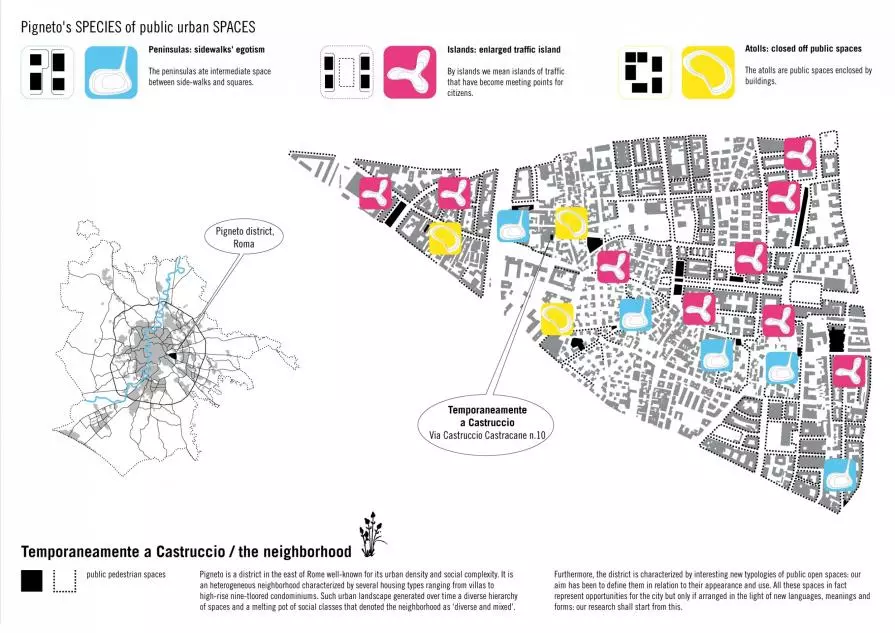
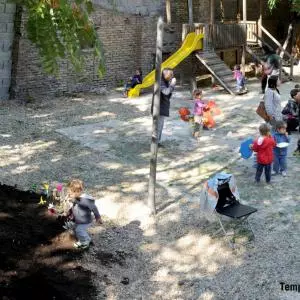
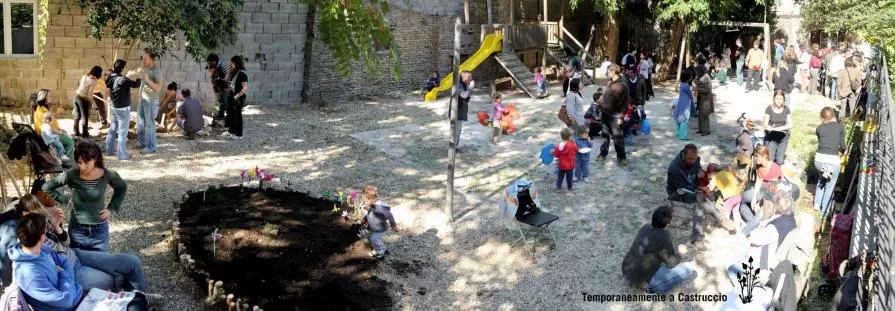
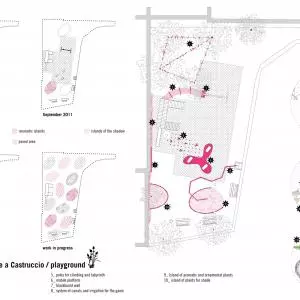
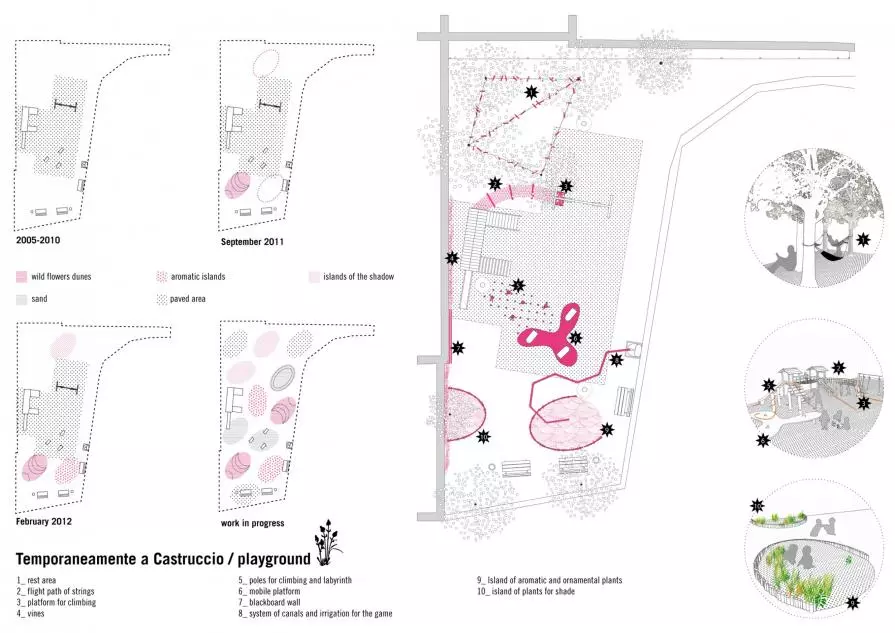
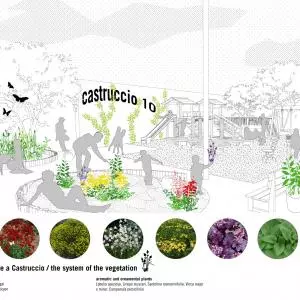
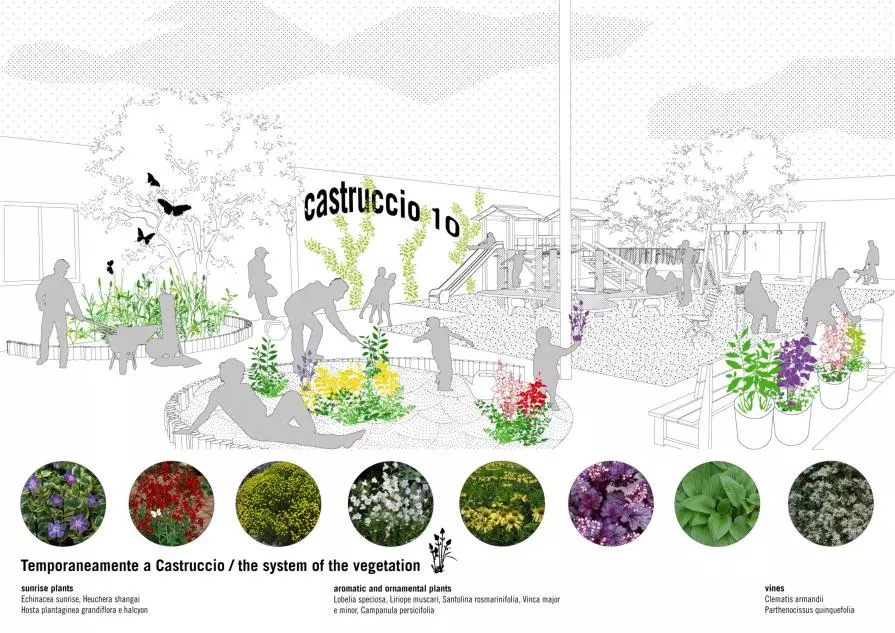
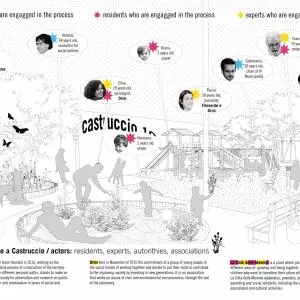
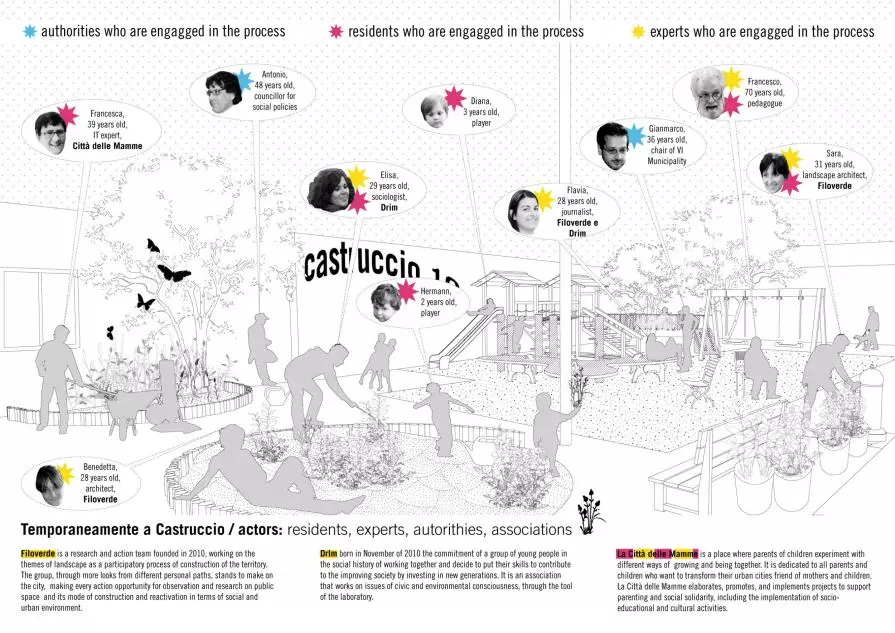
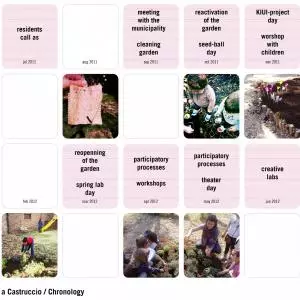
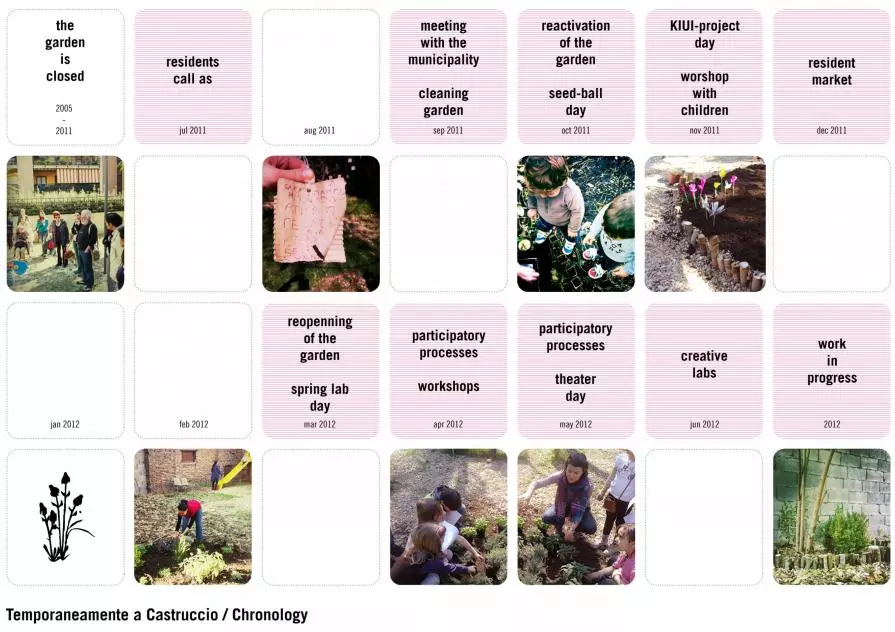
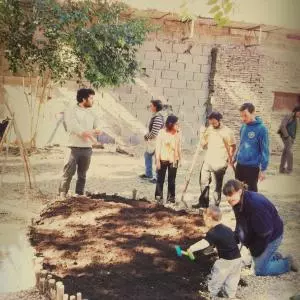
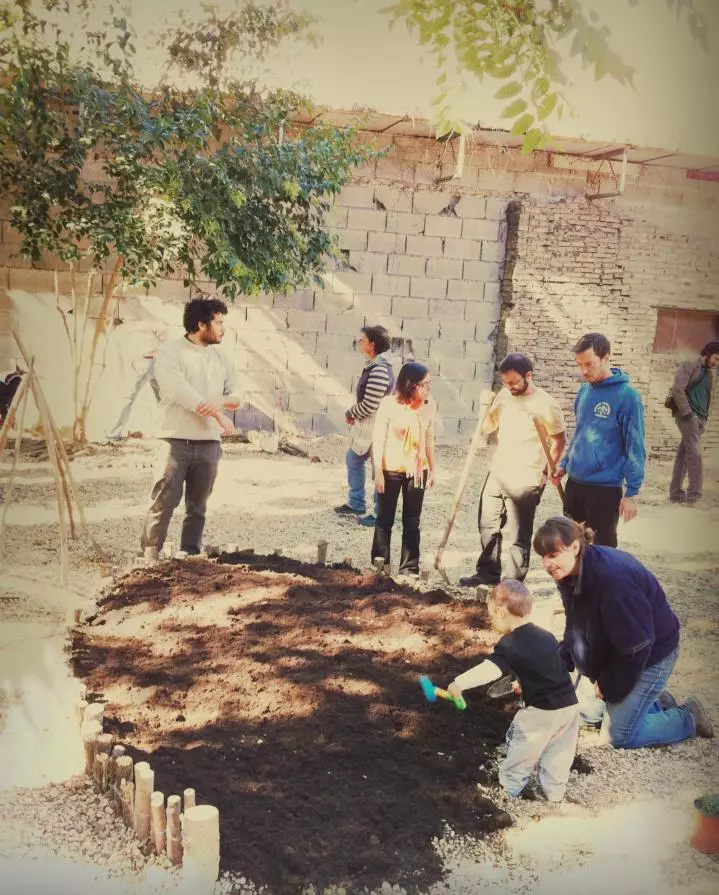
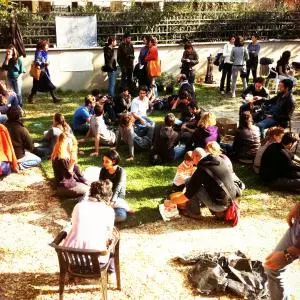
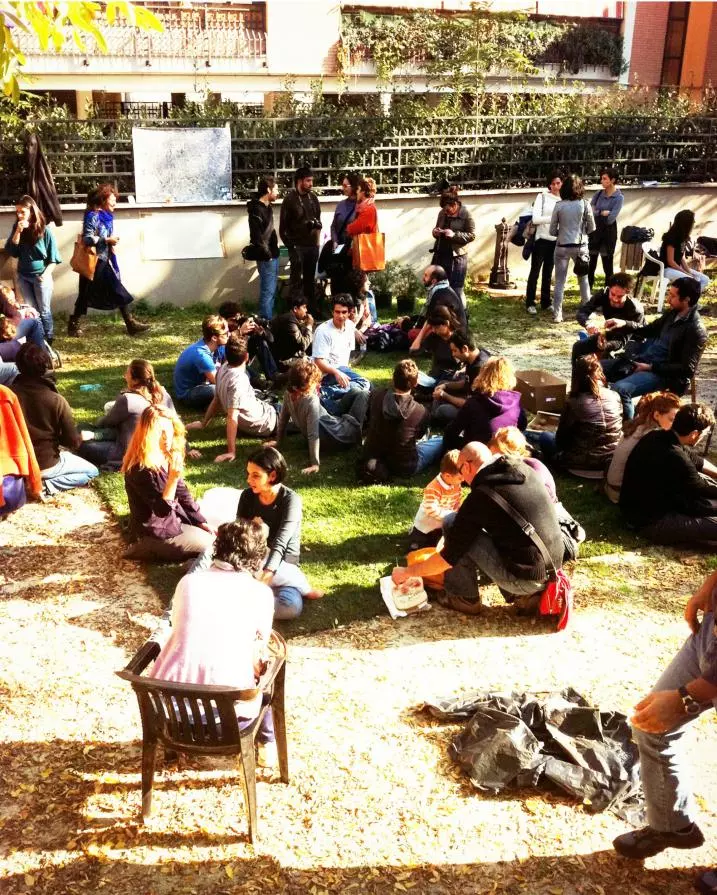
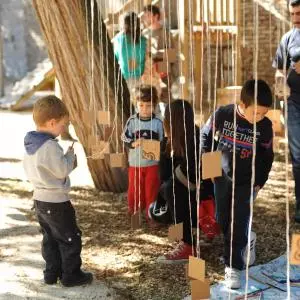
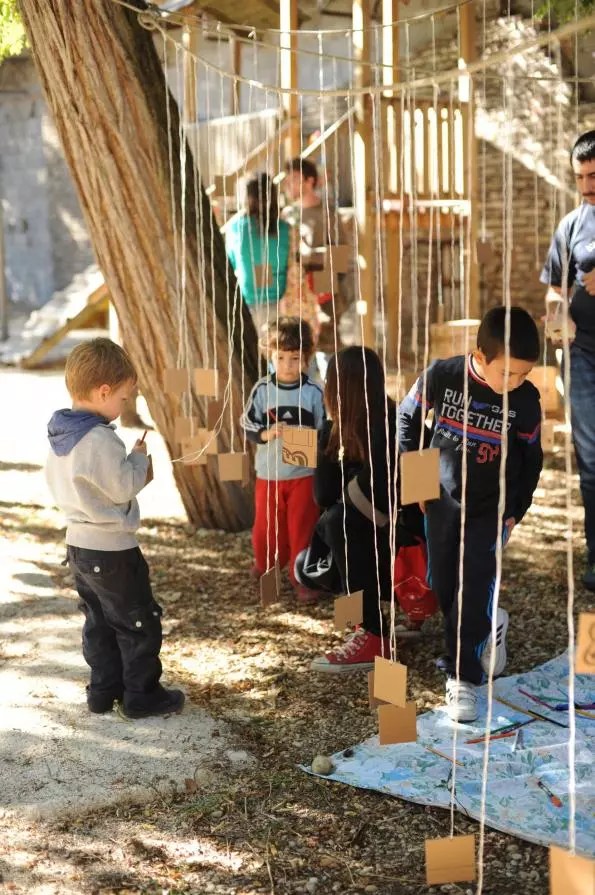
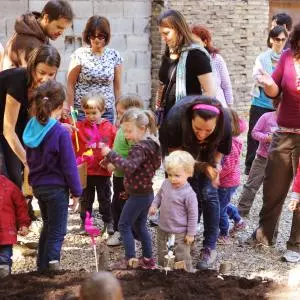
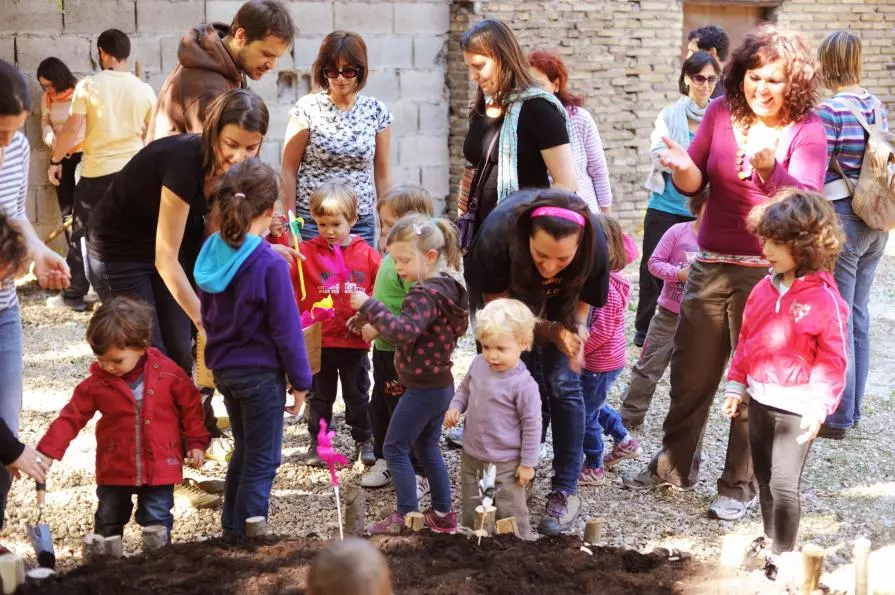





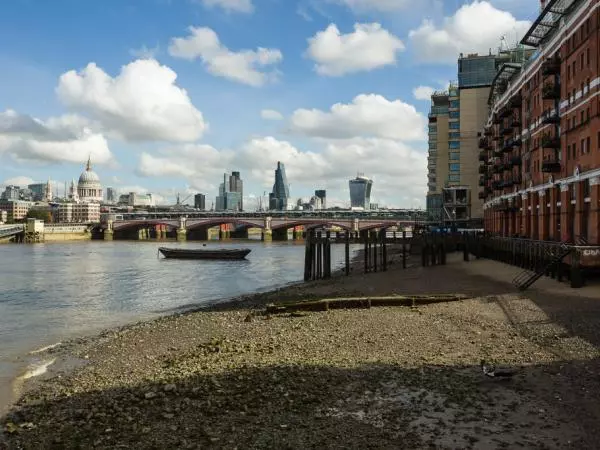
Comments 0
Say something